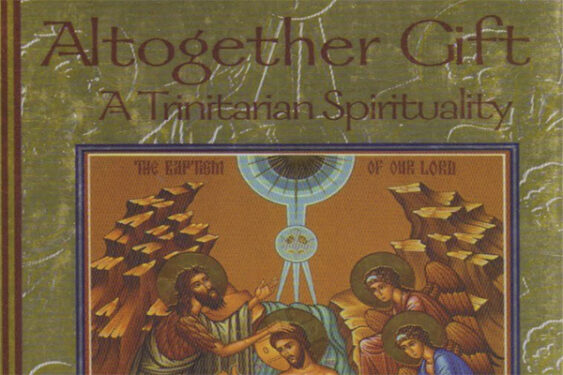
“Altogether Gift: A Trinitarian Spirituality,” by Michael Downey, Professor of Systematic Theology and Spirituality at Saint John’s Seminary in Camarillo, California. (Photo: Courtesy of Orbis)
Years ago, when I first studied the Vatican Two documents, I suspected that at the heart of many of the changes that were happening in the Church was a new concept of person. I found that new concept both exciting and challenging. I knew that I wanted to understand what the Council was saying about the human person better. This was one of the reasons why, when I began to teach philosophy, the courses that most interested me were courses about the mystery of the person.
The last five columns that I wrote using Robert Johann’s “Building the Human” (New York: Herder and Herder, 1968, pp. 192) were like a mini-review for me of some of the most important truths about the human person that have preoccupied me during the last fifty years.
If there is one central insight about the human person that I have learned from Johann and several existentialists, personalists, and phenomenologists, it is the relational nature of the human person. This aspect of the person was neglected in the undergraduate philosophy I studied as a seminarian many years ago. Now, in trying to provoke the students to reflection, I often suggest that to be a human person is to be relational, to be in dialogue with others, to be present to others, to be open to others. A person can be in relation to an object of nature such as a tree, to an animal such as a dog, to another human person, and God. Persons can decide how they will relate but they cannot decide whether they will relate.
In all our relationships with others, whether it be with objects of nature, animals, other persons, or with God, each relationship can reveal something of the mystery of God to us. There is nothing that God can create that does not resemble God in some way. I have come to think of God, Who is everywhere, waiting for us to accept His invitation to us to enter into a love relationship with Him. I believe that we can meet God indirectly through relationships with God’s creatures.
I now believe that the relationship that most reveals who we are as persons, and most make us who we are as persons, is our relationship with God in prayer. In his beautiful little book “Altogether Gift: A Trinitarian Spirituality” (Maryknoll, New York: Orbis Books, 2000, pp.143) Michael Downey writes the following:
“What is this strange and elusive thing we call love? Quite simply, to say that “God is love” is to say that God is not enclosed, not turned in on self. God is the life that pours itself forth: constantly, abundantly, excessively, never-to-stop -coming-as-gift. Life is altogether and absolutely a gift: a gift comes freely, unexpectedly, undeservedly. The gift is constant, trustworthy, faithful. God who is always and everywhere pouring forth is faithful.
Calling God ‘Father’ is a way of naming our relationship with God, a way of responding to the gift of Love expressed in the Word who is the Son of the Father, breathing life and love in the Spirit. It is our way of naming and celebrating the gift received, and of entering into a relationship with the Source of life-giving itself forth at every instant.” (p. 38)
Words that I say every time I celebrate a Eucharist have taken on a special significance for me. I am referring to the words with which I introduce the Our Father: “At the Savior’s command and formed by divine teaching, we dare to say…” The word “dare” has special importance for me. Who am I to call God my Father? How dare I call God my Father? I certainly did not earn or merit that honor. I do not deserve that honor nor did I initiate the relationship with God. I suggest my basic attitude toward God should be enormous gratitude and overflowing joy.
When I mention that our relationship with God in prayer most reveals who we are as persons and also makes us who we are as persons, I am trying to stress that we are created so that we can pray. When we pray sincerely we are never more ourselves, never more what a human person should be. To be a human person is to be called to be a person who prays. I have come to think that to be a human person is to be called, not only to pray but to be a living prayer. I suggest that the deeper our relationship with God becomes the more we become like an incarnate prayer. The more we allow the Holy Spirit to transform us the more our very existence speaks God’s life within us.
Father Lauder is a philosophy professor at St. John’s University, Jamaica. He presents two 15-minute talks from his lecture series on the Catholic Novel, every Tuesday at 9 p.m. on NET-TV.
